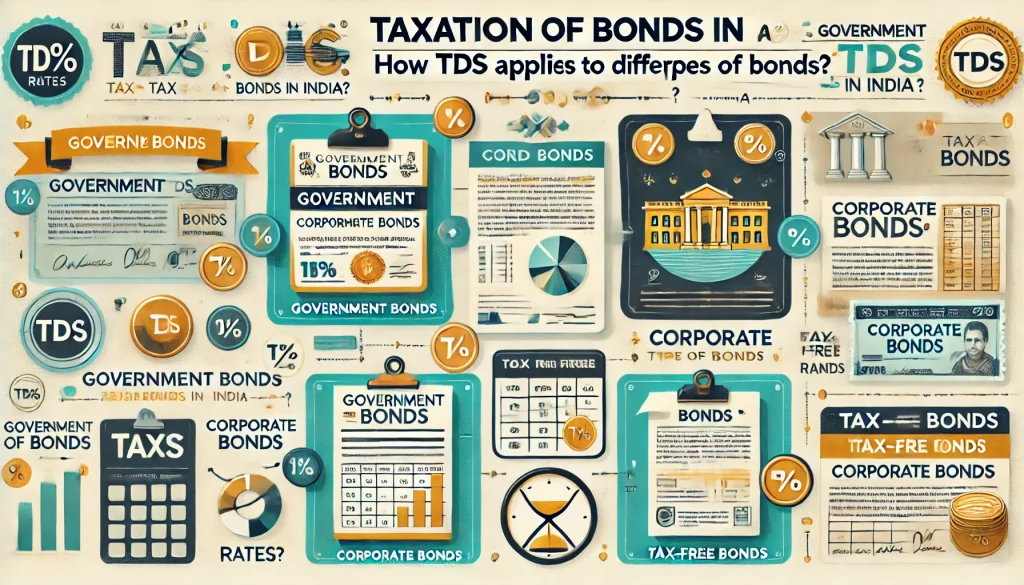
Bonds are investment instruments that are majorly issued by the government when they wish to raise funds. As an investor in bonds, you loan an amount to the issuer who in return promises to repay the loan’s face value to you on a specified date. The issuer would also be required to pay a periodic interest every 6 months throughout the tenure.
Among different types of government bonds, infrastructure bonds are growing as one of the popular investment instruments. If you are planning to invest in infrastructure bonds and earn decent returns, this blog is for you.
Keep reading to know what is infrastructure bond, its features, advantages, risks and other details.
What is an Infrastructure Bond?
In simple terms, infrastructure bonds are those which governments and infrastructure financing companies issue. These bonds help these companies and government raise funds for infrastructure projects. Such projects may include construction of roadways, railways, ports etc.
In India, two types of infrastructural bonds are common. These are regular income bonds and tax saving bonds. The former one is represented by educational, pension and other bonds. While the latter offers an individual the right to receive 20% tax deduction of investment amount from income.
Features of an Infrastructure Bond
Here are a few features of infrastructure bonds that help it stand out from other bonds.
- With infrastructure bonds, issuers can finance infrastructure construction on preferential time.
- After the construction is complete, the issuer will receive an infrastructure facility as concession for a certain period that might last for several decades.
- The bodies collect funds for a specific project. This means the securities of these bonds will fulfil certain short term purposes.
- Depending on the tenure of projects, there are certain long term infrastructure bonds that might last for 15 to 30 years.
- These bonds are issued on the basis of public-private partnership agreement or concession agreement.
- Institutional investors like insurance companies, credit institutions and pension funds are the main buyers of this type of bond.
- These bonds have a maturity period of 10 years usually and a lock-in period of 5 years.
Advantages of Investing in Infrastructure Bond
Here are a few noteworthy advantages of infrastructure bonds for investors.
- Unlike equity and equity related assets, infrastructure bonds do not get affected by stock market fluctuations and volatility.
- These bonds are safe and secure as they are guaranteed by the state government and municipalities of the region where the infrastructure construction is happening.
- The bondholders will positively receive returns for their investment from income that the issuer makes after the operation of relevant infrastructure facility.
- Investment in infrastructure bonds gives investors a tax deduction under section 80 CCF of Income Tax Act.
Disadvantages of Investing in Infrastructure Bond
Besides the above advantages, there are certain risks or disadvantages associated with infrastructure bond investments.
- These are comparatively risky as the returns from infrastructure bonds highly relies on environmental, market-determined risks and risks related to government regulations. These factors can delay the project which will eventually delay your returns.
- There is a shortage of projects that follow this type of financing. This is because conventionally, this project model includes lending as a financial medium.
- Gap or lack of representative information between issuer and investors regarding financing. This may cause a difference in market premium and investors’ premium.
Taxation of Infrastructure Bonds
According to the Income Tax Act, the earnings you will receive from infrastructure bonds will get categorised under Income from Other Sources.
The government encourages investors to invest in infrastructure bonds to enjoy tax deduction up to ₹20,000. You must invest at least ₹5000 in infrastructure bonds to get tax deduction.
Furthermore, the interest will get added to your income and taxation will happen as per your respective tax slab.
How to Apply for an Infrastructure Bond?
To apply and trade with infrastructure bonds, you can consider following the points below.
- You must first have a Demat account and PAN card to trade with infrastructure bonds.
- After visiting your respective trading platform, you will receive an online application form. Fill this up with required details and submit the form with necessary documents.
- To apply for infrastructure bonds in physical form, you must have a self-attested PAN card, identity and address proof documents for KYC.
- After the expiry of the lock-in period, the bonds can be traded on the stock exchange just like any other stocks.
Why Invest in an Infrastructure Bond?
These points below will throw light on why you might want to invest in infrastructure bonds.
- The government is taking initiatives to fund growth of smart cities by issuing more and more infrastructure bonds. By investing in them, you are playing the part of a major contributor in the smart city projects. This also exposes you to chances of earning wholesome returns once the project is operational.
- Infra bonds is a slowly but steadily growing sector in today’s market scenario. These are less risky and bring in decent returns which is favourable for investors with low risk appetite.
- On investing in infrastructure bonds with certain banks, you can also get free insurance. This is an add-on benefit only a few banks or NBFCs offer along with the regular interests.
- Helps the government execute its plan to launch numerous housing projects at affordable prices.
Conclusion
Unlike equity investments, the number of risks associated with infrastructure bonds are less. However, similar to other bonds, these also encompass certain disadvantages like liquidity risk, credit and currency risks. If you are a novice investor, planning to explore the field of infrastructure bonds, consider seeking expert help to know about the risks and perks of investmenting in this type of bond. You must also be aware of your financial goals and risk appetite before starting your investment journey with infra bonds.
FAQs
Indian individuals and HUFs are eligible to invest in infrastructure bonds.
The necessity for investors to have a Demat account relies on the issuers. Most often, issuers allow both holders and non-holders of Demat accounts to apply for infra bond investments.
No, you cannot avail loan on investment on infrastructure bonds.
No, you must pay tax on the interests that you will earn from infra bond investments.


